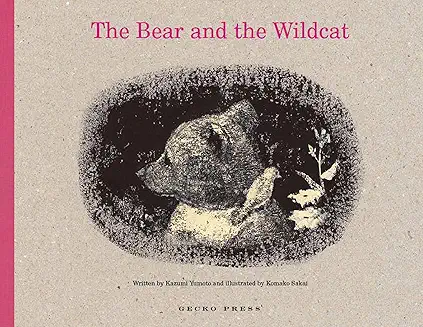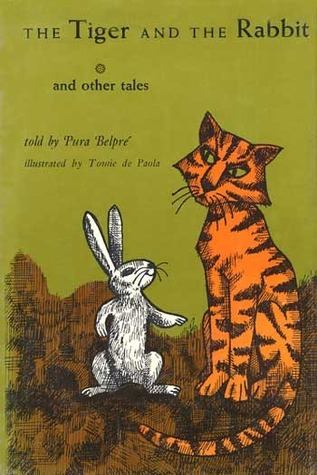Hi, I'm Ruth, a literary translator and SCBWI member, and I'm honored to be blogging with Lee Wind this month. Every September is World Kid Lit Month: an annual celebration of international literature for young people. So far this month, we’ve been on a whistle-stop tour of the Americas, Africa and Europe, with book tips from SCBWI members from eight regional chapters. Thank you everyone for getting involved and sharing your favorite international reads!
Our book recommendations from SCBWI members today come from Japan (the biggest hitter in terms of translation when you consider the vast publishing market for manga), but before that let’s explore a few other countries on the way…
Anne Coppell, children’s librarian in Aotearoa/New Zealand, has long been a supporter of World Kid Lit Month, and this year she’s even started a new blog sharing her favorite children's books from around the world but with a strong focus on Aotearoa and Pacific Islands. An absolute gem for anyone wanting to diversify their book collection for any of the many topics she’s explored this month: from Celebrations to Colonisation & history, from Dance, and Grandparents, to LGBTQIA+ and Self Esteem. Amazing. And if you haven’t come across his books before, do look up Gavin Bishop whose books are available in Māori/English bilingual editions from Gecko Press, among other publishers. As Anne says, “Bishop has been at the height of his powers for years, which means he is stratospherically / astronomically brilliant.”
Heading north to Papua New Guinea, Zillah Bethel, known for her generously spirited middle grade novel The Shark Caller, made a comeback last year with The Song Walker, taking us on a brief detour back south to the Australian Outback. But sorry Australia, we’ll have to come back another time, because Indonesia is calling, and two unmissable authors both published by The Emma Press, UK: When It Rains is a celebratory picture book from Rassi Narika, translated from Indonesian by Ikhda Ayuning Maharsi Degoul and Emma Dai’an Wright, and both volumes of the tales of Na Willa - Reda Gaudiamo's charming (fictionalised) memoir about a little girl growing up in Surabaya, Indonesia, translated by Kate Wakeling and Ikhda Ayuning Maharsi Degoul - are a sheer delight, as are the illustrations by Cecillia Hidayat.
From Vietnam, everyone must read and linger over the incredible tropical flora and fauna depicted in Jeet Zdung and Trang Nguyen’s Saving Sorya: Chang and the Sun Bear - one of two translations into English that won the historic 2023 Yoto Carnegie awards (for some reason, most likely to do with metadata and poor #namethetranslator action on the part of the publisher, Saving Sorya wasn’t recognized as a translation while The Blue Book of Nebo was. Anyway, both are incredible books and deserving winners!)
I can’t do justice in this short space to the many fabulous books being translated from China, Taiwan, Japan and Korean - the big hitters in terms of translations from Asia - other than to direct you to some great resources: the incredible Taiwanese Kid Lit series over at Global Literature in Libraries Initiative (they also ran an #IndiaKidLit series for World Kid Lit Month last year); the blog Chinese Books for Young Readers; recent reviews in Words Without Borders; and Ihatov - the blog of SCBWI Japan chapter.
Much as I long to get sidetracked by my favorite translations from Kazakhstan (Batu and the Search for the Golden Cup, translated by Shelley Fairweather-Vega), Iran (everything from Tiny Owl Books, but especially the bursting-with-compassion There’s Room for Everyone and also the new Mama Shamsi at the Bazaar by Mojdeh Hassani, Samira Iravani and illustrated by Lebanese supestar Maya Fidawi), Israel (Bear and Fred by Iris Argaman and Avi Ofer, translated by Annette Appel), Jordan (everything by Taghreed Najjar), and Palestine (Sonia Nimr - take a weekend off and devour the Thunderbird trilogy, translated from Arabic by Marcia Lynx Qualey. You won’t regret it), I shall stop here, and hand you over to our fellow SCBWI members, Suzanne and Eori for their recommendations from Japan…
Japan
Temple Alley Summer by Sachiko Kashiwaba, translated from Japanese by Avery Udagawa
Restless Books, 2021
Recommended by Suzanne Kamata, SCBWI Japan
Suzanne says …
"There is much to delight fans of Ghibli films in this book, as well as those who have never encountered Japanese children's stories. I imagine it might be like experiencing C. S. Lewis for the first time. I love that it starts with a boy peeing out the window because he is afraid of ghosts, and then evolves into a story of friendship between a human and a supernatural being. There are many glimpses into everyday life in Japan, such as the inevitable summer school projects, but the book avoids pop culture references that might date the story. It's an intriguing blend of mystery, ghost story, fairy tale, and fantasy, with quirky characters. It's at times sad, scary, funny, and sweet. I think it could become an international classic."
The Bear and the Wildcat by Kazumi Yumoto, translated from Japanese by Cathy Hirano
Gecko Press, 2011
Recommended by Eori Tokunaga, SCBWI Los Angeles, CA
Eori says …
"The Bear and the Wildcat is a story about a bear who grieves the loss of his best friend and a friendly Wildcat who helps the bear process his feelings of moving on. I came across this book while working at the library and was immediately attracted to the illustrations. As someone who lives with depression, I genuinely appreciate how gently the author weaves empathy and compassion into the story. I would highly recommend this book alongside other socioemotional stories such as The Memory Box: A Book About Grief and A Last Goodbye."
***
You'll find the previous articles in this World Kid Lit Month series here:
And for more recommendations of children’s and YA books from around the world, see the following websites:
***
Suzanne Kamata is an American permanent resident of Japan, and the author of the young adult novel Indigo Girl (GemmaMedia, 2019) and the middle grade novel Pop Flies, Robo-pets and Other Stories (One Elm Books, 2020), both set in Japan.
Eori Tokunaga is an author, illustrator, librarian, and zinester based in Los Angeles. Currently, she is working as an Assistant Editor for the SCBWI-Los Angeles Kite Tales blog and is putting together manuscripts/picture book dummies for submission.
Ruth Ahmedzai Kemp is an Arabic teacher and a literary translator working from Arabic, Russian and German into English. She gives workshops in schools about reading the world and creative translation, and is managing director of World Kid Lit, the hosts of World Kid Lit Month.












